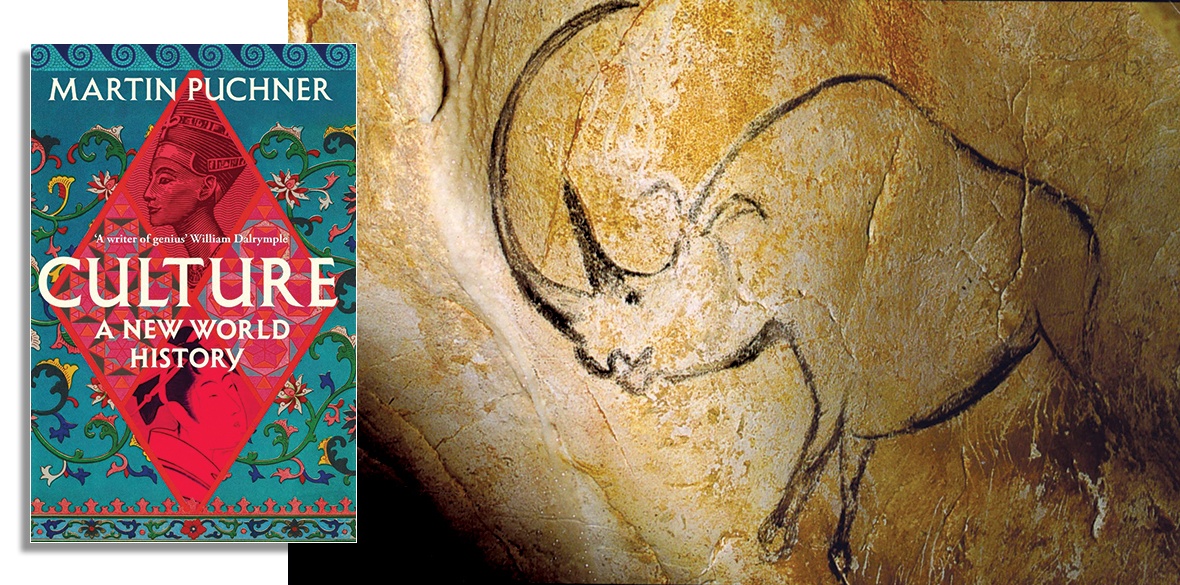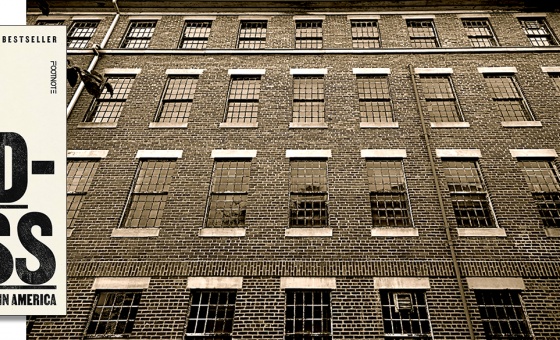This is the last article you can read this month
You can read more article this month
You can read more articles this month
Sorry your limit is up for this month
Reset on:
Please help support the Morning Star by subscribing here
Culture: A New World History
Martin Puchner
Ithaca, £12.99
MARTIN PUCHNER’S Culture: A New World History manages to achieve something not all histories do: to make you come away feeling that you’ve learnt something.
The book’s strength lies in its storytelling as a narrative history constructed from 15 chronological episodes that the author sees as emblematic of the varying ways in which culture has been created, used, discarded and rediscovered, going back to the 14th century BCE. As well as that, the book is framed by an introduction on the Chauvet Cave from 35,000 BCE and an epilogue about the future of the library in the digital age.
Among other things, we learn about the bust of Nefertiti, the Japanese Pillow Book, the Storehouse of Wisdom in Baghdad, the Ethiopian Kebra Nagast, Hildegard of Bingen, Moctezuma and the Aztec Empire, Toussaint L’Ouverture and George Elliot’s role in the origin of historiography. His focus is on visual and performing arts, plus to a lesser degree, literature, so there’s no real discussion of music, and none of film, though given that the latter is only turning 130 next year, so he can be forgiven for that.
Puchner is interested in thinking about two views of culture: one which sees it as belonging to particular groups or nations, and another which sees culture as processual, predicated upon sharing, borrowing, and yes, even stealing. Despite being sensitive to the crimes of imperialism, he very clearly comes down on the side of the latter, tracing as he does journeys that cross borders, such as those of “Xuanzang, the Chinese traveller who went to India and brought back Buddhist manuscripts [and the] Arab and Persian scholars who translated Greek philosophy.”
While this binary is central to debates, particularly in and around Western universities, it does, at least to some degree, play out in culture war terms. Instead of this, a dialectical approach to culture would allow readers to see how those two approaches work with each other and in contradiction, and to consider how they might be sublated.
At times, Puchner comes close to the conception of culture propagated by Raymond Williams in terms of his belief in culture as dynamic and historically grounded, though not to his general conception of “culture as ordinary.” While the book certainly doesn’t give us a “great man” view of history, it does mostly concentrate on culture made for and by the ruling class.
So what are the principal reasons for engaging with Puchner’s book? As well as those mentioned above, it’s the creation of transhistorical narratives via the engaging weaving together of objects from different eras. We learn how “everyone is influenced by someone; every instance of originality can be traced to things borrowed from others.”
An interesting example of Puchner’s approach is the story of the 14th-century sultan Firoz Shah Tughlaq, who ordered the moving of a 40-foot pillar from the Himalayas to Delhi, where his palace was. The pillar was inscribed with 1,600-year-old messages and was used by King Ashoka of the Maurya Empire to communicate with his subjects. Puchner then tells the reader how Xuanzang, the Buddhist monk referred to above, had translated them (badly) in the 7th century BCE. Xuanzang then gets his own chapter, where we learn about his pivotal role in bringing Buddhism from India to China.
For the author, this is typical of the ways in which culture maps “engagement across barriers of time and place, of surprising connections and subterranean influences.” He uses this example to begin a discussion about whether cultural objects should be returned or left where they are. Quite rightly, he sees the difference between suggesting that Ashoka’s pillar be moved 100 miles back to where it was found, and Greece’s call for the return of the Elgin Marbles, which were taken by the eponymous aristocrat, a man “out for loot.”
What is most pleasing about this history is the deft way in which Puchner relates historical events that may initially seem rather disparate and unconnected. Moreover, in a world of false binary, where “cancel culture” is lined up against reactionary conservativism, he reminds us that “much of culture involves interruption, misunderstanding, and misreading, borrowing and theft.” He reminds us that some culture is based on lies, such as the Greek origin myth created by Plato, in which Athens had fought a war with Atlantis, whose culture he actually based upon that of Egypt. In his dialogue Timaeus, he creates an imaginary history of Greek greatness that had been forgotten — except it hadn’t.
Finally, Puchner discusses the Future Library project, in which eight works of literature are buried until 2114, when they are to be excavated and printed on paper, with a concurrent planting of trees to offset the damage. As he points out, people in 2114 might take a dim view of cutting down trees to print books, in which case, he hopes they “accept this difference in values [and are] willing to engage with humans from the past whose behaviour they will almost certainly see as falling woefully short.”
He quotes Margaret Atwood for the final word on what culture says to the future: “Greetings. I was here.”
It’s hard to argue with that.








